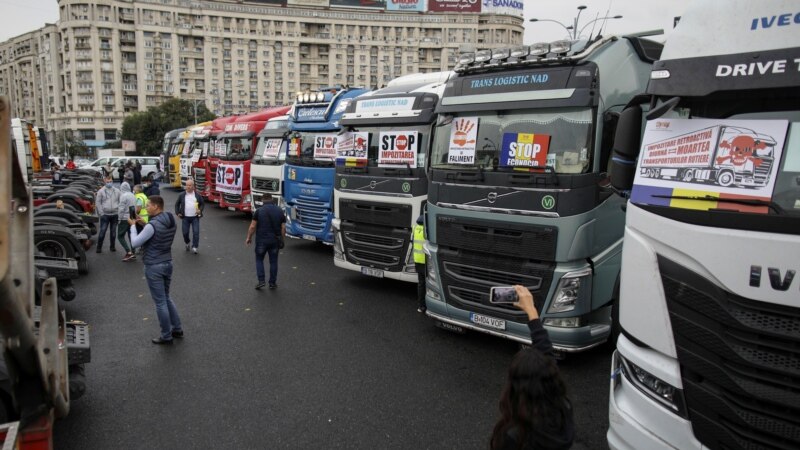Romanian truck drivers and farmers on Sunday slowed traffic around several cities, including the capital Bucharest, voicing a string of grievances from high tax rates to slow compensation payouts.
In their fifth day of action, protesters also gathered at border areas, temporarily blocking the northeastern border with Ukraine.
The truck drivers are complaining over high insurance and tax rates and long waiting times at the borders.
At the same time, the farmers are seeking speedier payment of subsidies and compensation for those affected by drought or by disruptions caused by the import of Ukrainian cereals.
Farmers complained that they have been losing money for the last two years because of the cheaper grains arriving from Ukraine, according to a video put on Facebook by the protesters.
Russia’s blockade of Ukraine’s seaports on the Black Sea has transformed Romania into a hub for the transit of Ukrainian grain, especially through the port of Constanta.
The protests began Wednesday, when dozens driving trucks and tractors headed from several cities toward Bucharest, traveling at low speeds.
Some admitted being inspired by similar protests in Germany.
Bucharest authorities did not allow the protesters to enter the city with the vehicles citing a lack of authorization for the protest.
After discussions with the ministries of agriculture and transportation Saturday, the protesters held talks on Sunday at the finance ministry.
But they announced that no agreement was reached.
“There are rules that we can no longer bear,” farmer Danut Andrus told journalists.
He added that he and his colleagues can no longer even obtain bank loans.
“We are no longer bankable, we don’t have the possibility to operate in the country,” he complained, adding that the protests would continue “until these authorities understand that their inability to manage a country is real.”
On Monday, German farmers began protesting Berlin’s plans to cut tax breaks for agriculture.
They used tractors and lorries to block roads across the country, including dozens in Berlin city center.
In Poland, farmers have blocked border crossings into Ukraine since November, complaining about “unfair competition” from Ukrainian counterparts and the relaxation of access rules to the European Union for Ukrainian firms.

